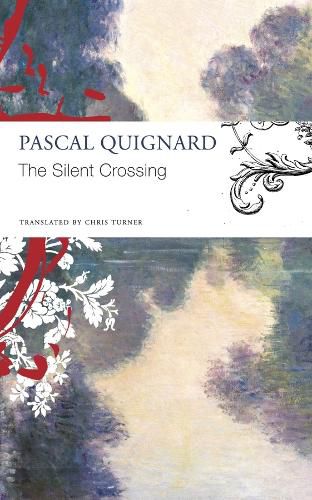Readings Newsletter
Become a Readings Member to make your shopping experience even easier.
Sign in or sign up for free!
You’re not far away from qualifying for FREE standard shipping within Australia
You’ve qualified for FREE standard shipping within Australia
The cart is loading…






A haunting homage to life and liberty, to society and solitude, and to the binding and unbinding that constitute the weft of our lives.
Drawing on materials from across many cultures, Pascal Quignard makes an effort to establish shared human values as the breeding ground for a modern Enlightenment. Considering atheism as a spiritual liberation, suicide as a free act, and the rejection of society as a free choice, the author explores philosophical themes that have run through human civilizations-most often as heresies-from our earliest days. In his search for freedom, Quignard questions the binding dependency of religion, querying how, in a world where all forms of society presuppose that someone (or some collective) is looking over our shoulders, we can be free. These reflections, he implies, are the essential spiritual exercise for our times. Few voices in contemporary French literature are more distinct than that of Quignard. By reading this fragmentary, episodic assemblage of intimate experiences and borrowed tales, we open up a space of liberty, creating for the reader space for meditation and, perhaps, liberation.
$9.00 standard shipping within Australia
FREE standard shipping within Australia for orders over $100.00
Express & International shipping calculated at checkout
Stock availability can be subject to change without notice. We recommend calling the shop or contacting our online team to check availability of low stock items. Please see our Shopping Online page for more details.
A haunting homage to life and liberty, to society and solitude, and to the binding and unbinding that constitute the weft of our lives.
Drawing on materials from across many cultures, Pascal Quignard makes an effort to establish shared human values as the breeding ground for a modern Enlightenment. Considering atheism as a spiritual liberation, suicide as a free act, and the rejection of society as a free choice, the author explores philosophical themes that have run through human civilizations-most often as heresies-from our earliest days. In his search for freedom, Quignard questions the binding dependency of religion, querying how, in a world where all forms of society presuppose that someone (or some collective) is looking over our shoulders, we can be free. These reflections, he implies, are the essential spiritual exercise for our times. Few voices in contemporary French literature are more distinct than that of Quignard. By reading this fragmentary, episodic assemblage of intimate experiences and borrowed tales, we open up a space of liberty, creating for the reader space for meditation and, perhaps, liberation.